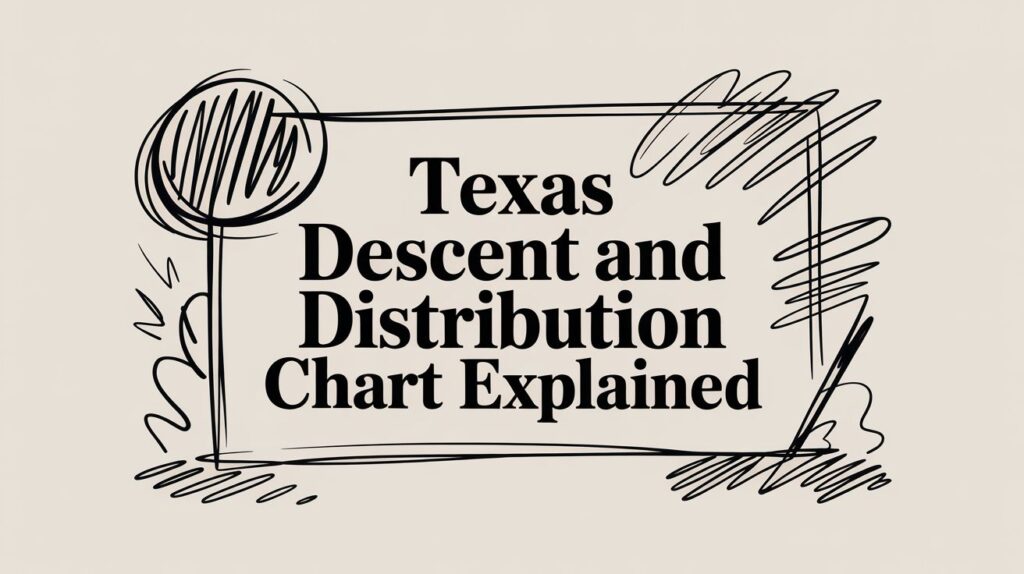If you’ve ever found yourself responsible for handling someone’s estate—whether it’s a parent, spouse, or sibling—you’ve likely discovered that probate court involves more than showing up with a will. In fact, common issues with probate paperwork are one of the main reasons why probate drags on, hits legal snags, or results in bitter courtroom disputes. Paperwork might sound boring, but in probate court, it’s everything.
In this article, we’ll take a detailed and human approach to explaining the most common issues with probate paperwork, using real-life examples, digestible analysis, and practical advice. You’ll come away understanding how small clerical missteps can lead to big legal delays—and what you can do to prevent them.

Why Probate Paperwork Matters So Much
The Power of a Proper Paper Trail
Probate court operates largely on documentation. Whether you’re dealing with a simple estate or a complex one, judges, attorneys, and heirs all rely on the accuracy and completeness of your probate forms. From inventory sheets to death certificates, every document becomes part of a legal narrative.
If even one document is missing, incomplete, or misfiled, it can throw the entire process into limbo. That’s why tackling the common issues with probate paperwork early is essential to keeping everything on track.
Real-Life Example: In Dallas, a daughter submitted her father’s will to probate, but forgot to attach the affidavit of witness signatures. The court rejected the filing, delaying the hearing by six weeks—during which utility bills, taxes, and mortgage payments went unpaid.
Mistake #1: Filing the Wrong Form—or the Right Form in the Wrong County
Jurisdiction Is Key
One of the most frequent common issues with probate paperwork is filing in the wrong jurisdiction. Probate cases must be filed in the county where the deceased person resided at the time of their death.
Even within the same state, paperwork and requirements can vary from county to county. Filing in the wrong place means you’ll likely have to start over—and the court won’t always notify you right away.
What to Do: Double-check the decedent’s last legal residence. Don’t guess. Review the property deed, utility bills, or mailing address records. Call the probate clerk’s office for guidance on local requirements.
Mistake #2: Not Submitting the Original Will
Copies Aren’t Always Enough
In Texas and many other states, you must submit the original signed will to the court for it to be considered valid. Photocopies, scanned PDFs, or emailed versions usually aren’t acceptable unless you can provide compelling evidence of why the original can’t be found.
Without the original, the will might be treated as invalid—triggering intestate succession laws and potentially changing who inherits.
Real-Life Story: In San Antonio, a man died leaving a scanned copy of his will on his computer. His sister, named as executor in that document, couldn’t locate the physical version. The judge deemed the scanned version insufficient, and the estate went to the next of kin—excluding a close friend the man had intended to include.
This is one of the most heart-wrenching common issues with probate paperwork, especially when intentions are clear but legally unenforceable.
Mistake #3: Incorrect or Incomplete Heir Information
Slowing the Process Before It Starts
Every probate form asking for heir or beneficiary information must be complete—and accurate. Courts often require full legal names, current addresses, and relationship to the decedent. Mistakes here cause delays and can lead to failed notifications, rescheduled hearings, or additional filings.
Why It Matters: Courts must notify all parties with a legal interest in the estate. If someone isn’t notified properly, they may contest the probate process later—even after it’s completed.
What to Double-Check:
- Spelling of names
- Last known addresses
- Legal vs. nicknames (e.g., “Bob” vs. “Robert”)
- Marital status or updated names after marriage/divorce

Inaccuracies in these details top the list of common issues with probate paperwork that frustrate courts and families alike.
Mistake #4: Not Including Required Supporting Documents
A Checklist Can Save Weeks of Waiting
Probate filings don’t stand alone. They require attachments—like death certificates, affidavits, tax forms, and letters testamentary. Missing any of these can stall the case until everything is submitted correctly.
Examples of Commonly Missing Documents:
- Certified death certificate
- Proof of executor identity (ID or notarized affidavit)
- Paid funeral expenses
- Real property appraisals
- Notice of service to heirs
Best Practice: Create a probate checklist for your county. Visit the court’s website or ask a clerk to confirm what must be attached to each form. This avoids one of the most time-consuming common issues with probate paperwork—fixing incomplete files after you’ve submitted them.
Mistake #5: Misreporting Assets or Liabilities
Numbers Don’t Lie—But You Have to Get Them Right
One of the critical steps in probate involves submitting a full inventory of the estate. This includes everything the decedent owned and owed: cash, real estate, vehicles, retirement accounts, and debts.
Where Things Go Wrong:
- Undervaluing property
- Forgetting assets in other states
- Misclassifying separate vs. community property
- Omitting credit card or medical debt
These missteps are among the most common and damaging common issues with probate paperwork. An inaccurate inventory can lead to disputes among heirs, audit flags, or court rejections.
Tip: Work with a CPA or estate attorney to confirm asset values. Double-check bank statements, insurance policies, and property deeds.
Mistake #6: Misusing or Misunderstanding Legal Terms
Probate Has Its Own Language
Probate paperwork is full of legalese that can be confusing—especially if you’re completing forms without legal help. Using the wrong terminology or checking the wrong box can lead to rejections, misunderstandings, or even liability issues.
Example: Confusing “heir” with “beneficiary.” Not all heirs are beneficiaries—and vice versa. Calling someone an heir when they were only named in the will can lead to complications, especially if others are excluded.
What to Watch For:
- “Intestate” vs. “Testate”
- Executor vs. Administrator
- Community vs. Separate property
- Devisee vs. Legatee
The misuse of terms is a classic among common issues with probate paperwork, and it can be surprisingly costly.
Mistake #7: Skipping Required Notices
Notification Isn’t Just a Courtesy—It’s the Law
Most courts require the executor or administrator to formally notify all heirs, beneficiaries, and creditors. This usually involves sending certified letters and publishing notices in an approved newspaper.
Failing to do this isn’t just a technical error—it can invalidate the entire probate process.
What Can Go Wrong:
- Heirs later claim they weren’t notified
- Creditors file lawsuits for unpaid debts
- The court suspends the case until proper notices are issued
If there’s one item on this list of common issues with probate paperwork that frequently comes back to haunt executors, it’s failing to follow proper notice procedures.

Mistake #8: Not Keeping Copies or Backups
You’ll Need Them—Again and Again
Probate paperwork isn’t a one-and-done affair. You’ll need copies of key forms multiple times—for banks, title transfers, tax filings, and court proceedings.
Real-Life Problem: An executor in Fort Worth lost the original letters testamentary and couldn’t close out the estate’s bank accounts. She had to file a motion for reissuance and wait four weeks for approval.
Always keep multiple certified copies of critical documents—and store digital backups securely. Preventing these paperwork mishaps is one of the easiest ways to avoid unnecessary stress.
Mistake #9: DIY Probate Without Legal Guidance
It’s Tempting—But Risky
Probate might seem like a job you can do alone, especially for small estates. But without guidance, many people fall into traps that lead to costly corrections or even litigation.
Why It Happens:
- Misunderstanding form requirements
- Filing late
- Responding incorrectly to creditor claims
- Distributing assets too early
While DIY might save money short-term, it often leads to the most frustrating common issues with probate paperwork down the road.
Real Case: How a Simple Signature Delay Caused a 6-Month Setback
Mary, an executor for her brother’s estate in Houston, mailed probate documents to her attorney—but forgot to sign one key affidavit. By the time the lawyer caught it and sent it back for signing, the court filing window had closed.
She had to refile the probate application from scratch. Her brother’s bank accounts remained frozen for months, leading to missed payments and late fees.
A single missed signature created a chain reaction—and a classic example of how common issues with probate paperwork can snowball fast.
Best Practices to Avoid Paperwork Pitfalls
Stay Organized and Be Proactive
To avoid these common mistakes:
- Use a checklist for each court-required form
- Keep an accordion file or digital folder for all estate documents
- Cross-check names and spellings
- Follow up regularly with the court clerk
- When in doubt, consult a probate attorney

Treat probate paperwork like a legal roadmap. Each page brings you closer to completing the estate—and every error creates a detour.
Final Thoughts on Common Issues With Probate Paperwork
Paperwork might not seem like the most important part of probate—but anyone who’s been through it knows that documentation can make or break the process. From missed deadlines to incorrect forms, the common issues with probate paperwork have the power to slow down, derail, or even invalidate estate proceedings.
By understanding where these problems usually occur—and how to avoid them—you can save time, reduce stress, and protect your loved one’s legacy. Probate isn’t easy, but it’s manageable when you have the right information and a plan to stay organized from start to finish.








